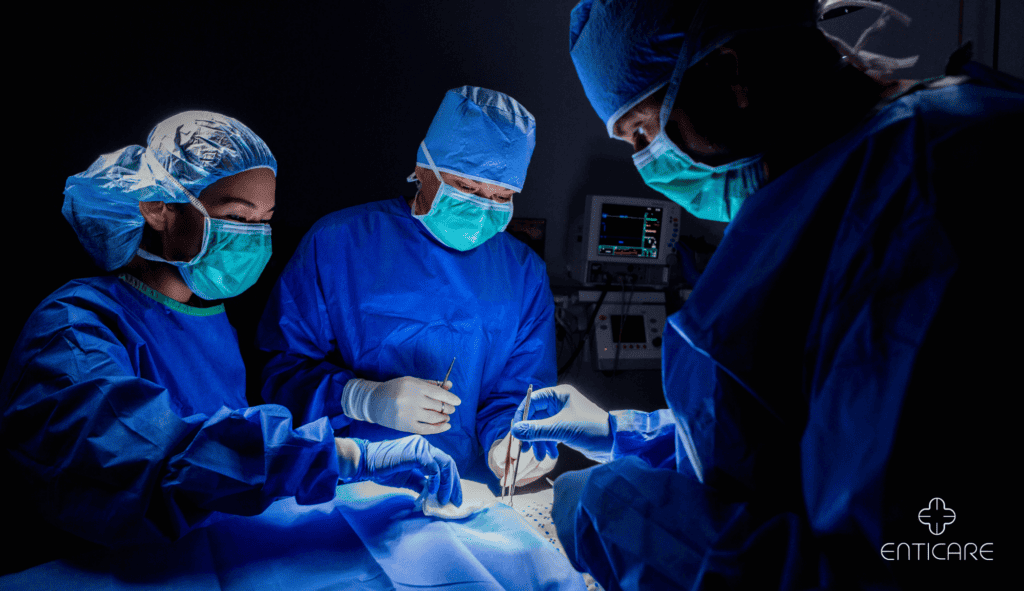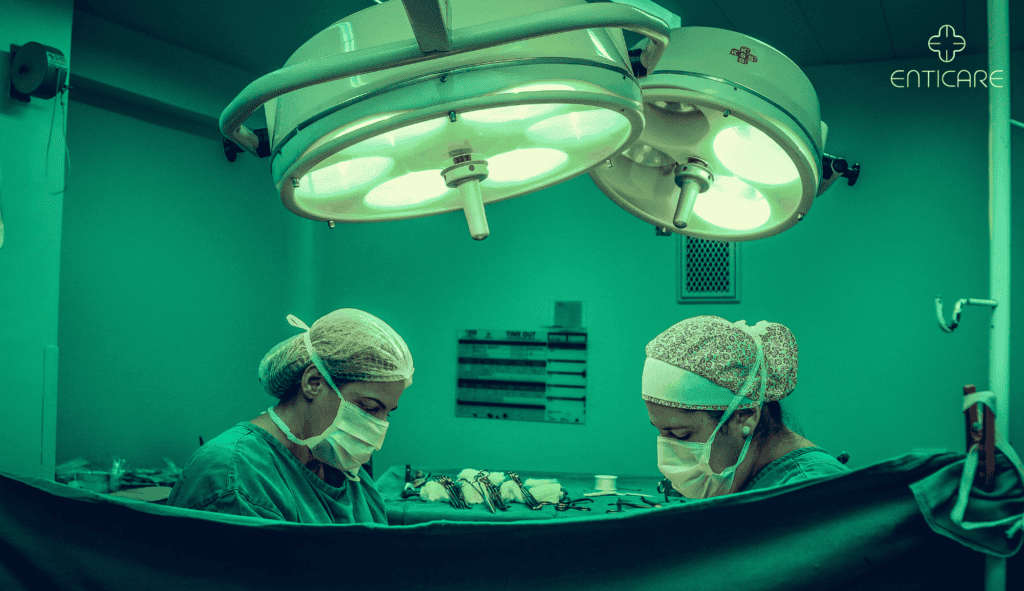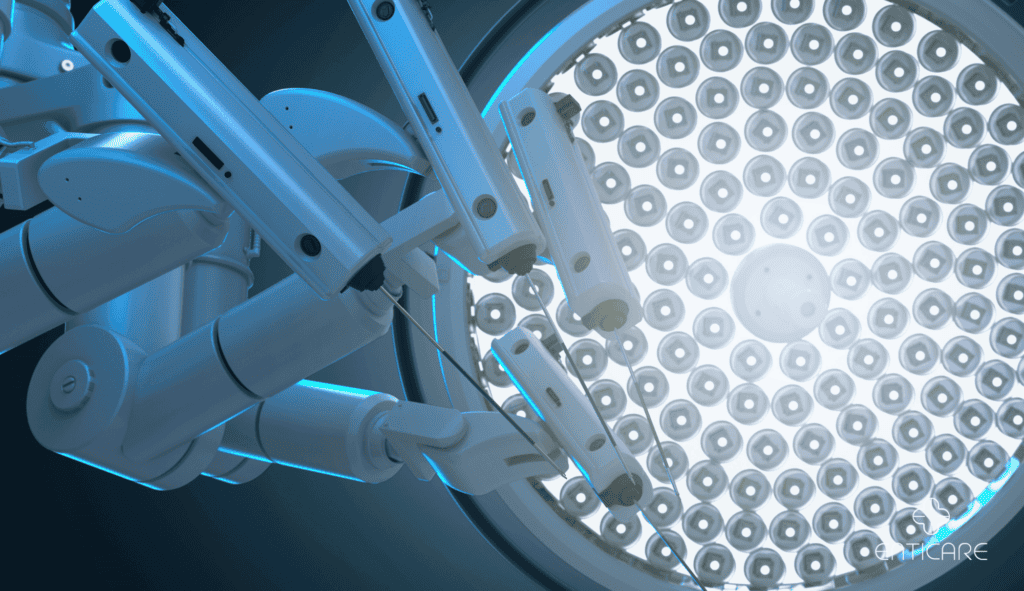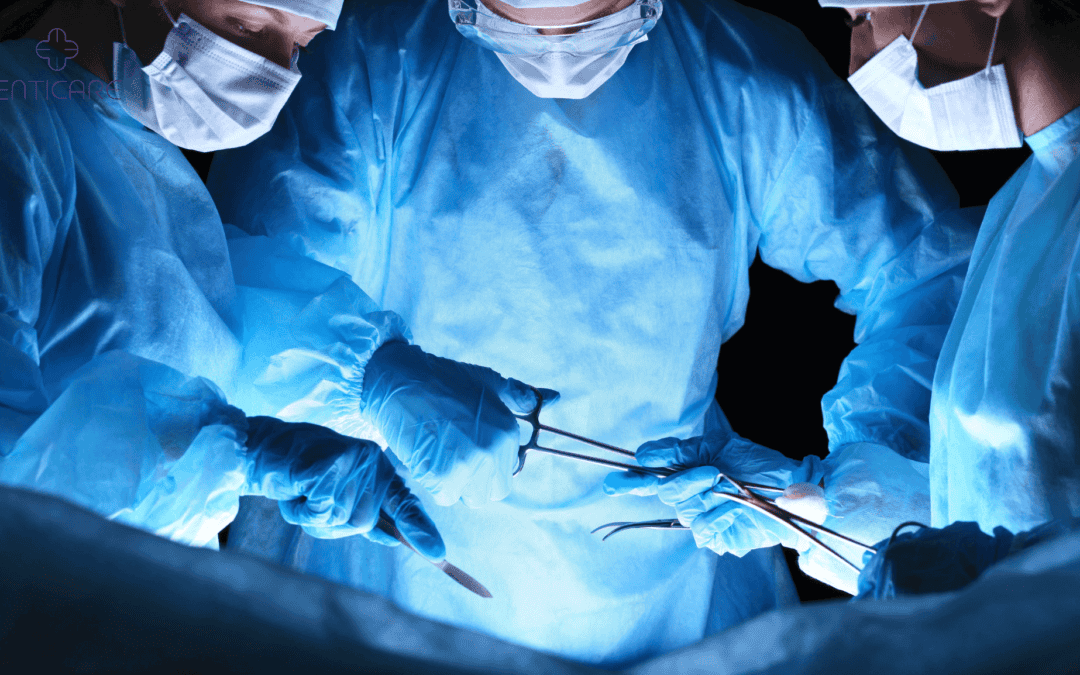Sleep apnea impacts millions of individuals globally. While lifestyle changes and non-surgical treatments, such as the use of a CPAP machine, may offer relief, surgery can provide a lasting solution for those with severe conditions. If you’ve been diagnosed with sleep apnea and are exploring your options, understanding the types of surgery, their costs, and their safety can be a game-changer in your journey to better sleep. This guide walks you through everything you need to know about sleep apnea surgery and how it might address sleep apnea as the right solution for you.

What is Sleep Apnea, and When Do You Need Surgery?
Sleep apnea is a condition that causes a person to repeatedly stop and start breathing while sleeping. The two major types of sleep apnea are obstructive sleep apnea (OSA) and central sleep apnea (CSA). Most surgical interventions target OSA since it often stems from physical blockages in the airways. For those with moderate sleep apnea, non-surgical treatments like dental appliances and mouthpieces can be effective, but surgery might be considered if these options are not successful.
Severity and Non-Surgical Treatments: Continuous Positive Airway Pressure
Before considering surgery, doctors recommend non-surgical treatments such as Continuous Positive Airway Pressure (CPAP) machines, weight loss, or an oral appliance. When these options do not offer significant relief, it might be time to think about surgery.
Risk Factors for Obstructive Sleep Apnea
People with anatomical issues, like enlarged tonsils or a deviated septum, may need surgery for effective long-term treatment. If left untreated, sleep apnea can lead to high blood pressure, heart problems, and an increased risk of stroke.
Why Surgery?
Surgery provides permanent relief by addressing the root cause of the obstruction, making it a powerful option for people with moderate to severe obstructive sleep apnea.
Learn more about sleep apnea from the Mayo Clinic. For more information on the causes of sleep apnea, you can visit the page on what are the causes of sleep apnea.

Types of Sleep Apnea Surgery
Sleep apnea treatment includes various surgeries that target specific airway blockages. Here’s a closer look at the most common types.
Uvulopalatopharyngoplasty (UPPP)
UPPP is one of the most frequently performed sleep apnea surgeries. It removes excess tissue from the throat to widen the airway. Surgeons might remove the uvula, soft palate tissue, and tonsils to prevent airway collapse during sleep.
Genioglossus Advancement (GA)
Genioglossus advancement involves repositioning the muscles that attach your tongue to your lower jaw, preventing it from blocking your airway. This surgery targets the tongue’s base, often contributing to airway obstruction.
Maxillomandibular Advancement (MMA)
MMA is a more invasive procedure that repositions both the upper and lower jaws to create a larger airway. By moving the jaws forward, MMA ensures the airway remains open during sleep. While effective, this procedure requires significant recovery time and is typically reserved for severe cases.
For more details on different surgical options for sleep apnea, visit the American Sleep Apnea Association.
Costs of Sleep Apnea Surgery: What You Need to Know
Understanding the cost of sleep apnea surgery can help you plan ahead. Many factors influence the total price, from the type of surgery to geographical location and health insurance coverage.
Cost Breakdown
Sleep apnea surgeries like UPPP and GA can cost anywhere from $6,000 to $10,000. More complex surgeries, such as MMA, may range between $20,000 and $40,000, depending on the surgeon’s fees, hospital stay, and follow-up care.
Health Insurance Coverage
Many insurance plans cover sleep apnea surgery, particularly when non-surgical options have failed. It’s crucial to get pre-approval from your insurance company before scheduling the surgery to avoid unexpected costs and to review your coverage for durable medical equipment necessary for the treatment of sleep disorders.
Out-of-Pocket Expenses
Even with insurance, patients may still face out-of-pocket costs like co-pays, deductibles, and post-operative care. Financial planning becomes essential for ensuring you can manage these costs without unnecessary stress.

Safety of Sleep Apnea Surgery: What to Expect
Sleep health remains a top priority when considering surgery for sleep apnea. While most surgeries carry a degree of risk, sleep apnea procedures have a high success rate, especially when performed by experienced surgeons.
Pre-Surgery Considerations
Before undergoing surgery, doctors conduct a comprehensive evaluation, including sleep studies and imaging of the airways. These tests ensure that surgery is the right option and that no other conditions complicate your procedure.
Surgical Risks
Common risks include infection, bleeding, and complications from anesthesia. However, sleep apnea surgeries have become increasingly refined, reducing the likelihood of severe complications. Surgeons also discuss any potential long-term effects, like voice changes or difficulty swallowing, depending on the procedure.
Recovery Time
Recovery times vary based on the type of surgery. UPPP patients might recover in a few weeks, while more complex procedures like MMA require months for complete healing. During recovery, doctors monitor sleep patterns to ensure the surgery has resolved the issue.
Read about sleep apnea surgery safety on the National Institutes of Health’s website.
Benefits of Sleep Apnea Surgery: Improved Quality of Life
Undergoing surgery for sleep apnea, a common sleep disorder, offers numerous long-term benefits, transforming the quality of sleep and overall health.
Better Sleep
Surgery eliminates airway obstructions, allowing for deeper, uninterrupted sleep. Patients often report reduced snoring and fewer wake-ups throughout the night.
Improved Health
Untreated sleep apnea can lead to serious health complications like heart disease, diabetes, and stroke. Surgical intervention significantly reduces these risks by improving oxygen flow during sleep.
Increased Energy and Mental Clarity
After surgery, patients often experience increased energy levels and better focus during the day. The improved sleep quality contributes to enhanced cognitive function and emotional well-being, leaving you feeling more refreshed and alert.
Is Sleep Apnea Surgery Right for You?
Choosing surgery to treat sleep apnea involves careful consideration of your health, lifestyle, and budget. While non-invasive treatments remain a first-line option, surgery can offer a permanent solution for those with severe sleep apnea. Understanding the different surgical procedures, costs, and safety precautions allows you to make an informed decision with your doctor.
If you’re ready to explore sleep apnea surgery or want more information, schedule a consultation today with a specialized ENT doctor. Visit ENTicare’s Sleep Apnea Surgery Page to book your appointment and take the first step towards better sleep and a healthier life!
By consulting with sleep medicine providers, you can reclaim your nights, improve your health, and start living your best life without the constant interruption of sleep apnea.

